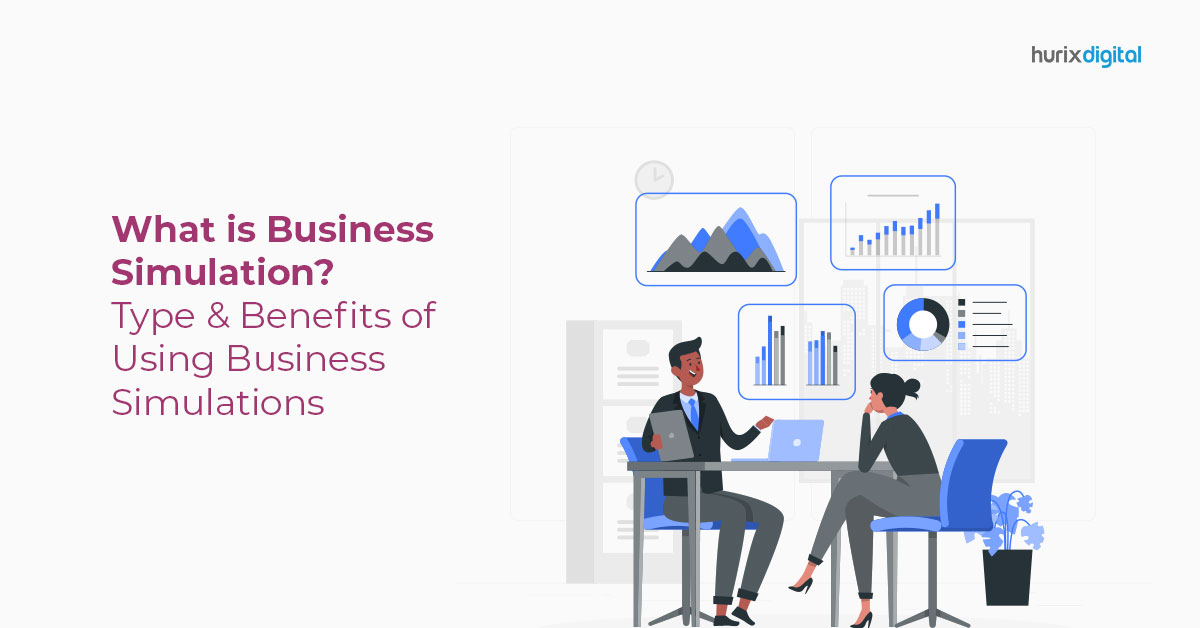
How Does Business Simulation Training Drive Superior Outcomes in Banking & Finance?
Summarize with:
The banking and finance sector is prone to multiple risks. The consequences of inaccurate decisions can range from financial losses and loan fraud to investigations by regulatory bodies and the eventual shutdown of businesses. On the other hand, superior, data-driven decisions reduce risks, drive revenues, and increase profit margins.
A key challenge faced by businesses is that teams lack the resources and training tools to play out multiple business scenarios in a risk-free environment. This is where business simulation training can create opportunities for teams to practice and build superior decision-making skills.
The global virtual training and simulation market is estimated to grow to $1174.03 million by 2031. This market is expected to grow at a Compound Annual Growth Rate of 13.30% from 2024 to 2031.
In this blog, we deconstruct this mode of training, business simulation examples, the benefits, and its impact on decision-making and business growth.
Table of Contents:
- What is a Business Simulation?
- Business Simulation Examples
- 6 Top Benefits of Business Simulation
- Impact of Business Simulation
- Final Words
What is a Business Simulation?
Business simulation refers to an artificially generated activity or event that mimics a real-world example in the world of business. Companies and business programs use such simulations for training to help equip learners with practical skills.
By adopting an automated, AI-powered Learning Management System, businesses in the banking and finance domains can generate unlimited simulations that emulate real-world conditions.
A combination of technologies such as cloud computing, Artificial Intelligence (AI), Virtual Reality, Augmented Reality, and data analytics are harnessed to generate the simulations. In turn, learners can practice extensively in diverse market scenarios. They can build experiential skills that prepare them to make data-driven, strategic decisions swiftly and accurately.
L&D heads and HR professionals are using these technologies to encourage ongoing learning and flexible decision-making in their organizations. This not only boosts employee engagement and retention but also helps businesses adapt quickly to changing market conditions.
Also Read: Meeting the Needs of Changing Student Demographics and Workforce Demands
Business Simulation Examples
Here’s a snapshot of two business simulation examples from the banking and finance sector:
1. Accessing a Borrower’s Risk Profile
Borrowers from a bank’s lending vertical come with diverse needs, risk profiles, assets, cash flows, and credit histories. Underwriting decisions play an important role in determining a borrower’s ability to repay a loan on time and in full. Accessing risk accurately, swiftly, and efficiently is a challenge for lending teams, especially for borrowers with limited assets and no credit history.
The introduction of simulation training can expose the lending team to diverse borrower personas, their limitations, needs, and challenges. Based on in-depth data analysis and insights, lenders can make accurate, risk-reduced lending decisions.
In turn, the bank can increase conversions and customer lifetime value, reduce customer acquisition costs, drive revenues, and increase profitability.
2. Sales of Financial Products
Marketing financial products comes with unique challenges. Sales representatives must be able to pitch the business and its products efficiently while recommending relevant products to prospective customers.
This is where sales training simulations can help prepare sales personnel to present the business and its products more authentically, and seed trust in customers.
Live conversational scenarios with diverse customer personas, and their follow-up actions, are simulated. The complexity of scenarios can be increased to increase the challenge and learning. Sales reps need to make quick decisions and drive positive outcomes. They can receive instant feedback on their performance. Businesses can offer coaching and learning resources as per their needs.
6 Top Benefits of Business Simulation
The adoption of simulation training has multiple benefits for the banking and finance sectors, as follows:
1. Build Practical Skills
Theoretical programs enable finance professionals to gain knowledge. On the other hand, simulation training enables them to put formulae and theory into practice. They can learn and hone skills that prepare them for the world of work.
2. Zero Risks
Simulation employee training in the banking and financial sector allows learners to build skills without the financial and compliance risks that come with real-world transactions in the banking and finance sector. The business continues to be secure, as the data and decisions are used only for learning.
3. Experiment with Diverse Market Scenarios
Learners can simulate a wide range of market scenarios, which prepares them for all potential outcomes in the world of work. The conditions and permutations they can experiment with are endless.
4. Unlimited Practice Sessions
Learners can access unlimited practice sessions, on demand. The more they practice, the more they are prepared for real-world experiences.
5. A Variety of Simulation Techniques
Today, businesses can implement a range of simulation techniques as per their needs, challenges, and learner profiles. For instance, these can range from predicting outcomes in pre-existing conditions to strategic simulations, which engage multiple learners simultaneously.
6. Detailed Feedback
Learners receive in-depth feedback, which helps them evaluate their performance objectively. The feedback is automated, instant, unbiased, and actionable. Learners also receive useful resources that they can use to improve their performance.
Impact of Business Simulation
Here’s a snapshot of how business simulation is supporting learners and businesses:
- Business simulation is a cost-effective, sustainable solution that unlocks umpteen simulation training examples and, in turn, raises the standard of banking and financial professionals. Training teams can be lean and work optimally.
- Banking and financial professionals build superior decision-making skills as they can practice taking risks in a risk-free learning environment.
- Over time, businesses can eliminate errors committed by their workforce, which, in turn, leads to fewer liabilities such as lawsuits, penalties, and settlements.
- Access to learner data helps businesses identify trends and predict future behaviors of their employees. They can invest in more training, according to the findings, and hone their skills as future leaders.
- Feedback is a continuous, consistent process in the simulation training method. Hence, professionals across the hierarchy keep learning and honing new skills.
- As professionals build skills for the future, their ability to solve problems improves. A skilled, engaged, and productive workforce also reduces attrition and translates to sustainable, faster business growth.
Check out EXCLUSIVE: Hurix Mini-Book: Effective Training Techniques for Enterprises with Distributed Workforce
Final Words
Digital transformation has profoundly disrupted the banking and finance sectors, reshaping job roles and creating new opportunities. To stay competitive, workforces must continuously upgrade their skills to adapt to evolving market demands.
Access to superior business simulation training enables businesses to prepare their workforces for new challenges, transitions, and unpredictable market conditions. Employee engagement, motivation, and productivity grow. In turn, these have a domino effect on revenues, growth, and profitability.
Businesses looking to implement impactful simulation training can partner with a tech-enabled training specialist like Hurix Digital.
Contact us today to explore how we can help you prepare your workforce for future success!
Summarize with:

 A Space for Thoughtful
A Space for Thoughtful 



